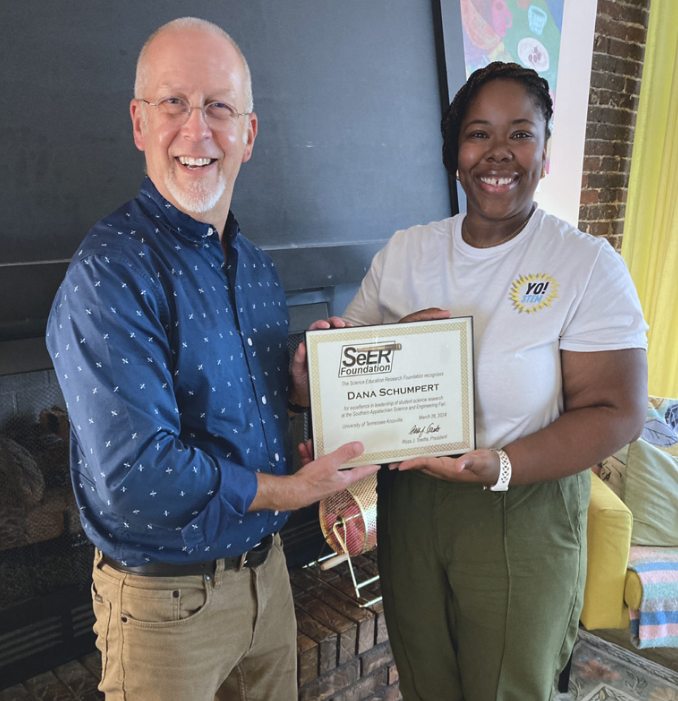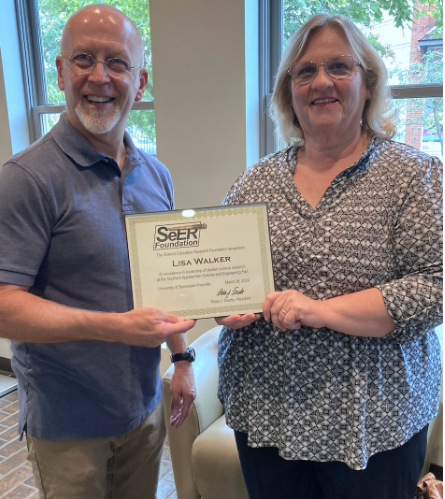Filling Critical Gaps in STEM Education Research
The SeER Foundation is a 501(c)(3) charitable organization that funds the creation and use of science,
technology, engineering, and mathematics (STEM) education research by PreK-12 STEM educators anywhere in the United States and affiliated with any type of educational institution. Projects are selected annually for funding based on their creativity, growth potential, likelihood of goal attainment, and other factors.
Dana Schumpert, program director for Knoxville-based Youth Outreach in STEM (Yo!STEM), is a 2024 winner of the SeER Science Fair Mentor Excellence Award for supporting the project, "Is Vegan Leather More Sustainable than Real Leather?"
Lisa Walker, retired teacher from Maury Middle School in Jefferson County, is a SeER Foundation Mentorship Award winner for excellence in fostering creative investigation and personally meaningful learning, supporting the project "Water-Powered Cars, The Next Gen".

